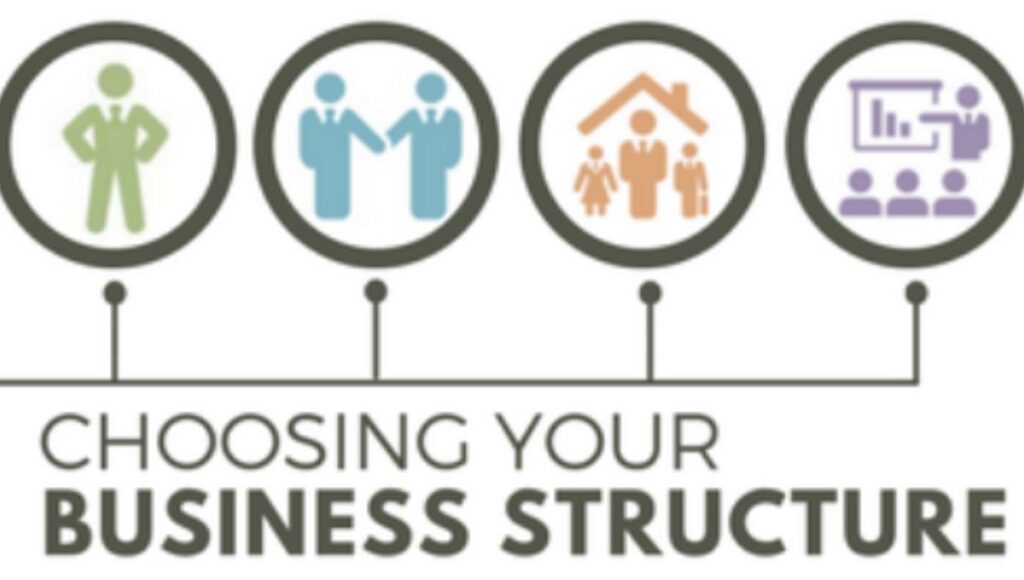Ever dreamed of being your own boss in the Great White North? Well, buckle up, because we’re about to take you on a wild ride through the ins and outs of starting a business in Ontario! Whether you’re a UK entrepreneur looking to expand across the pond or a USA mogul-in-the-making eyeing Canadian opportunities, this guide’s got you covered.
Ontario’s bustling economy and diverse market make it a prime spot for new ventures. So, let’s dive into our 11-step checklist that’ll have you saying “eh” to success in no time!
Table of Contents
Step 1: Brainstorm Your Million-Dollar Idea
Before you start printing those “CEO” business cards, you’ve got to nail down your big idea. Ontario’s market is as vast as its wilderness, so there’s plenty of room for innovation. Here’s how to get those creative juices flowing:
- Find your niche: Ontario’s diverse population means there’s a market for just about everything. From tech startups in Toronto to eco-tourism in Muskoka, the possibilities are endless.
- Assess your skills: What are you good at? What makes you jump out of bed in the morning? Your passion could be your ticket to success. Consider a business incubator to elevate your presence in the market.
- Research unique opportunities: Ontario’s government often highlights sectors they’re looking to grow. Keep an eye on their economic reports for hot tips!
Remember, the best businesses solve problems. So ask yourself, “What headache can I cure for Ontarians?” Maybe it’s a maple syrup delivery service (hey, don’t knock it till you’ve tried it) or an app that predicts Tim Hortons line-ups. The sky’s the limit!
Step 2: Get Down and Dirty with Market Research

You’ve got your idea, now it’s time to see if it’s got legs. Market research isn’t just a fancy term to impress investors – it’s your crystal ball into the future of your business. Here’s how to do it right:
Understanding Ontario’s Demographic Breakdown
Ontario’s population is as diverse as a bag of trail mix. Here’s a quick snapshot:
| Age Group | Percentage |
| 0-14 | 16.4% |
| 15-64 | 66.8% |
| 65+ | 16.8% |
With a mix of urban centers and rural communities, you’ll need to know exactly who you’re selling to.
Identifying Your Target Audience
Get specific! Are you aiming for the hipster crowd in Toronto’s West Queen West, or the cottage-goers in Muskoka? Knowing your audience helps you tailor everything from your product to your marketing.
Analyzing Competitors
Don’t reinvent the wheel – unless you’re making a better wheel, of course. Study your competitors:
- What are they doing right?
- Where are they falling short?
- How can you stand out?
Pro tip: Use tools like Google Trends to see what Ontarians are searching for. It’s like being a mind reader, but legal!
PRODIGY PROMOS LAWSUIT: CONTROVERSY OF LEGAL BATTLE
Step 3: Craft a Killer Business Plan

Now it’s time to put pen to paper (or fingers to keyboard). Your business plan is your roadmap to success, and in Ontario, it’s also your ticket to funding and partnerships. Here’s what you need to include:
- Executive Summary
- Company Description
- Market Analysis
- Organization and Management
- Service or Product Line
- Marketing and Sales
- Funding Request
- Financial Projections
Don’t forget to sprinkle in some Ontario-specific flavor. Mention how you’ll navigate the provincial regulations or take advantage of local resources. The Ontario government offers free business plan templates – use them!
“Failing to plan is planning to fail.” – Benjamin Franklin
Old Ben wasn’t talking about starting a business in Ontario, but he might as well have been!
Step 4: Choose Your Business Structure

This is where things get official. Your business structure affects everything from your taxes to your personal liability. Let’s break down the options:
Sole Proprietorship
Pros:
- Easy and cheap to set up
- Full control over decisions
- Simple tax filing
Cons:
- Personal assets at risk
- All the responsibility on your shoulders
Partnership
Pros:
- Shared workload and resources
- Complementary skills
Cons:
- Potential for disagreements
- Shared liability
Corporation
Pros:
- Limited personal liability
- Easier to raise capital
- Potential tax advantages
Cons:
- More complex and expensive to set up
- More regulatory requirements
For our friends from the UK and USA, note that while these structures are similar to what you’re used to, the specifics can vary. It’s worth chatting with an Ontario-based accountant or lawyer to get the full scoop.
Step 5: Register Your Business and Get Licensed
You’ve got your plan, you’ve chosen your structure, now it’s time to make it official! Here’s your step-by-step guide to becoming a legit Ontario business:
- Choose your business name: Make sure it’s not already taken!
- Register with the government: You can do this online through the Ontario Business Registry.
- Get your Business Number: This is your unique ID for tax purposes.
- Apply for necessary licenses and permits: These vary by industry and location.
Don’t forget to check if you need any special certifications. For example, if you’re opening a restaurant, you’ll need a food handling certificate. The Ontario government’s BusinessInfo Line is a goldmine of information – use it!
Step 6: Sort Out Your Finances
Money makes the world go ’round, and it’ll keep your business spinning too. Here’s how to get your finances in order:
Opening a Business Bank Account
Separate your personal and business finances from day one. Most major Canadian banks offer business accounts with perks for new businesses. Shop around for the best deal!
Exploring Funding Options
Ontario’s got your back when it comes to funding. Check out these options:
- Grants: The Ontario Grants Portal lists available government grants.
- Loans: The Canada Small Business Financing Program offers loans up to $1,000,000. You can also try personal loans to get business advantages.
- Investors: Angel investor networks like Angel One Network are always on the lookout for promising startups.
Understanding Ontario’s Tax System
Taxes might not be fun, but they’re a fact of business life. Here’s what you need to know:
- HST (Harmonized Sales Tax): Currently 13% in Ontario.
- Corporate Income Tax: Rates vary based on your business size and structure.
- Payroll Taxes: Don’t forget about CPP, EI, and income tax deductions for employees.
Pro tip: Consider hiring an accountant who knows Ontario’s tax system inside and out. It’ll save you headaches (and potentially money) in the long run.
Step 7: Set Up Shop: Location, Location, Location
Whether you’re setting up a brick-and-mortar store or a home office, your location matters. Here’s what to consider:
Home-Based Business
Pros:
- Low overhead
- Flexible hours
- No commute
Cons:
- Possible zoning restrictions
- Mixing work and personal life
Brick-and-Mortar
Pros:
- Visibility to customers
- Clear separation of work and home
Cons:
- Higher costs
- Less flexibility
Virtual Office
Pros:
- Professional address without the high rent
- Access to meeting rooms when needed
Cons:
- Less control over your work environment
Ontario’s commercial real estate market varies widely from the bustling streets of Toronto to the quieter towns up north. Do your homework on local prices and foot traffic before committing to a location.
Step 8: Build Your Dream Team
Your business is only as good as the people behind it. Here’s how to build a stellar team in Ontario:
- Understand Ontario’s employment standards: Minimum wage, overtime rules, vacation pay – know the basics.
- Write clear job descriptions: Be specific about what you’re looking for.
- Use local job boards: Websites like Indeed and LinkedIn are popular, but don’t forget about Ontario-specific sites like JobBank.
- Consider diversity: Ontario prides itself on multiculturalism – let your team reflect that!
Remember, you can also look into contractors or freelancers for specific projects. Sites like Upwork or Freelancer.com can connect you with talent worldwide.
Step 9: Create Your Brand and Marketing Strategy
Time to let the world know you exist! Your brand is more than just a logo – it’s the personality of your business. Here’s how to make it shine:
- Develop your brand identity: Choose colors, fonts, and a logo that represent your business values.
- Create a website: In today’s digital age, this is your storefront to the world.
- Leverage social media: Ontarians love their social media – be where your customers are!
- Network, network, network: Join local chambers of commerce or business associations.
Don’t forget about traditional marketing methods too. A well-placed ad in a local Ontario newspaper can still work wonders, especially in smaller communities.
Step 10: Launch and Learn
The big day has arrived – it’s time to launch! But remember, launching isn’t the end of your journey; it’s just the beginning. Here’s how to make a splash and keep the momentum going:
- Soft launch vs. grand opening: Consider a soft launch to iron out any kinks before your big debut.
- Gather feedback: Ask your first customers what they think. Their input is gold!
- Be flexible: Don’t be afraid to pivot if something’s not working.
Case Study: Take inspiration from Shopify, the e-commerce giant that started as a snowboard equipment store in Ottawa. They noticed the need for better online store software and pivoted to become one of Canada’s biggest tech success stories.
Step 11: Scale and Grow
Congratulations, your Ontario business is up and running! But why stop there? Here’s how to take it to the next level:
- Expand your product line or services: What else do your customers need?
- Consider new locations: If you’re killing it in Toronto, why not try Ottawa or London?
- Look into exporting: Ontario’s strategic location makes it perfect for reaching US markets.
Keep learning and growing. Attend workshops, join mentorship programs, and stay up to date with business trends. The Ontario government offers various support programs for growing businesses – take advantage of them!
FAQ’S
How much does it cost to start a business in Ontario?
- Business Registration:
- Sole proprietorship or partnership: $60
- Corporation: $300
- Business Name Search: $8-$26 (It’s worth every penny to make sure you’re not stepping on any toes!)
- Licenses and Permits: $50-$500 (This can skyrocket for certain industries, so do your homework!)
- Professional Fees: $500-$2000 (A good lawyer and accountant are worth their weight in gold)
- Insurance: $500-$2000 per year (Because stuff happens, and you want to be covered when it does)
- Website and Marketing: $500-$5000 (Your digital storefront is often the first impression customers get)
- Equipment and Inventory: $0-$100,000+
| Expense Category | Low End | High End |
| Legal Essentials | $618 | $2,826 |
| Operations | $1,000 | $7,000 |
| Equipment | $0 | $100,000+ |
What information is needed to register a business in Ontario?
- Your personal info: Name, address, and contact details
- Business name: Your brilliant idea for a company name
- Business address: Where you’ll set up shop
- Business activity: A quick description of what you’ll do
- Owner details: Info on all owners or partners
- Business structure: Sole proprietorship, partnership, or corporation
- Start date: When you plan to kick things off
- If you’re going the corporation route, you’ll also need:
- Articles of Incorporation
- Director details: Names and addresses
- Share structure: How your company’s ownership is divvied up
Pro tip: Have all this info ready before you start. It’ll make the process smoother than a fresh jar of peanut butter!
How to start a business in Canada as a foreigner?
- Choose your entry path:
- Start-up Visa Program
- Self-Employed Persons Program
- Come as a temporary resident
- Craft a killer business plan
- Show you’ve got the cash to back it up
- Apply for the right visa
- Once you’re in, register your business
- Get necessary permits and licenses
- Open a Canadian bank account
- Learn the tax ropes (maybe hire a local accountant)
Pro tip: Patience is key! The process might take a few months, but Canada’s welcoming business scene is worth the wait.
What are the things needed to start a business?
- A killer idea (the secret sauce!)
- Market research (know your audience)
- Solid business plan (your roadmap to success)
- Funding (cash is king)
- Legal structure (sole proprietorship, partnership, or corporation)
- Registrations and licenses (paperwork party)
- Business bank account (keep it separate from personal funds)
- Accounting system (numbers are your friends)
- Business location (physical or virtual)
- Equipment and inventory (tools of the trade)
- Marketing plan (get the word out)
- Insurance (better safe than sorry)
- Team or support network (you’re not alone)
- Passion and perseverance (fuel for the journey)
Pro tip: Use this as a checklist. Tick off each item as you go, and you’ll be amazed at how quickly your business dream becomes reality. Now go out there and make it happen!
